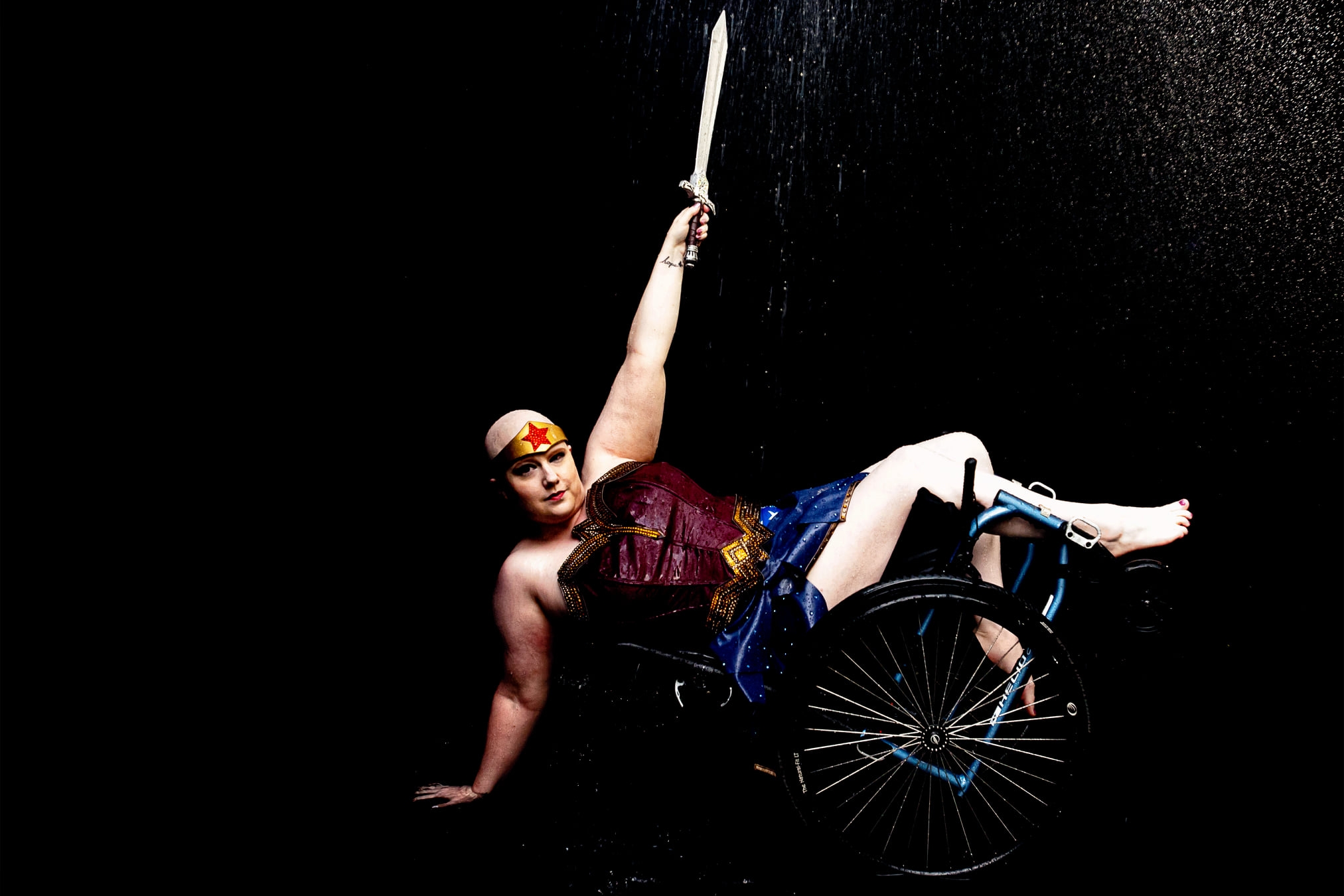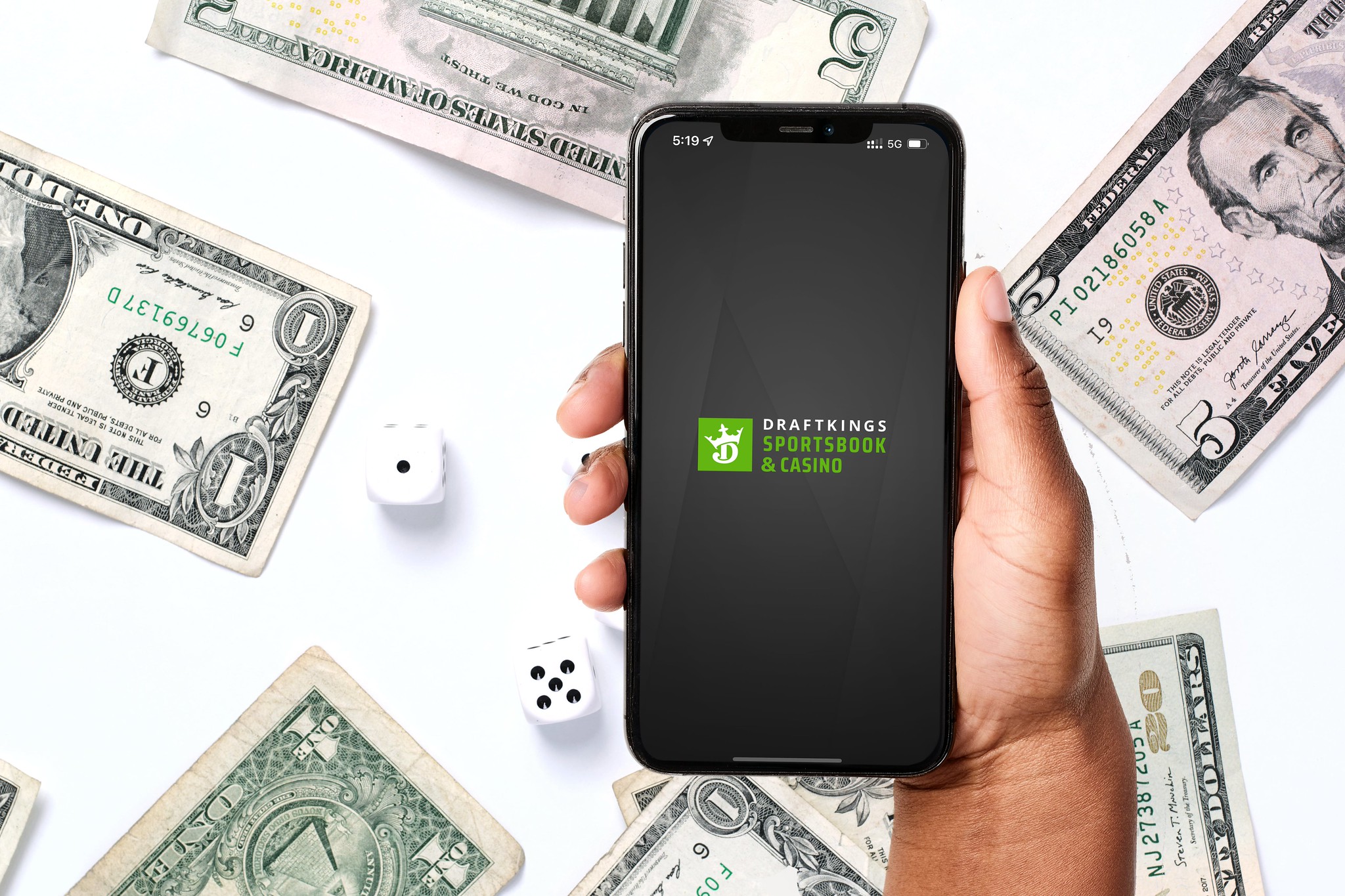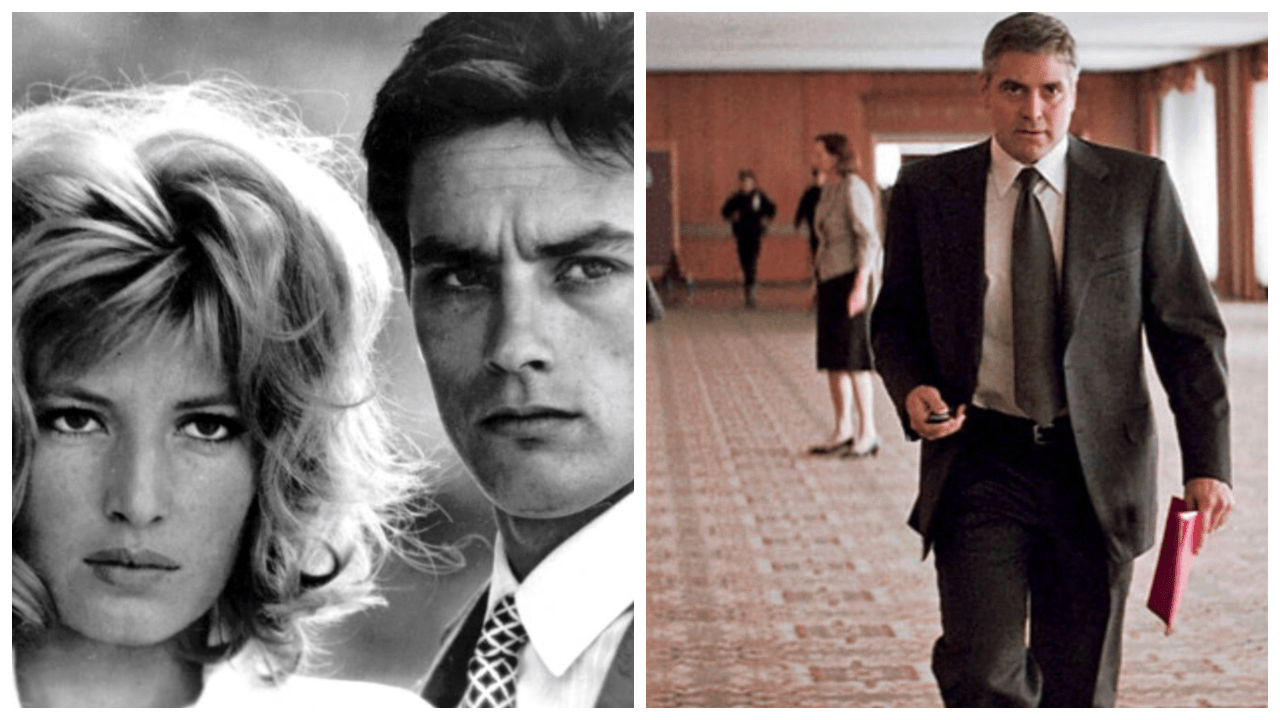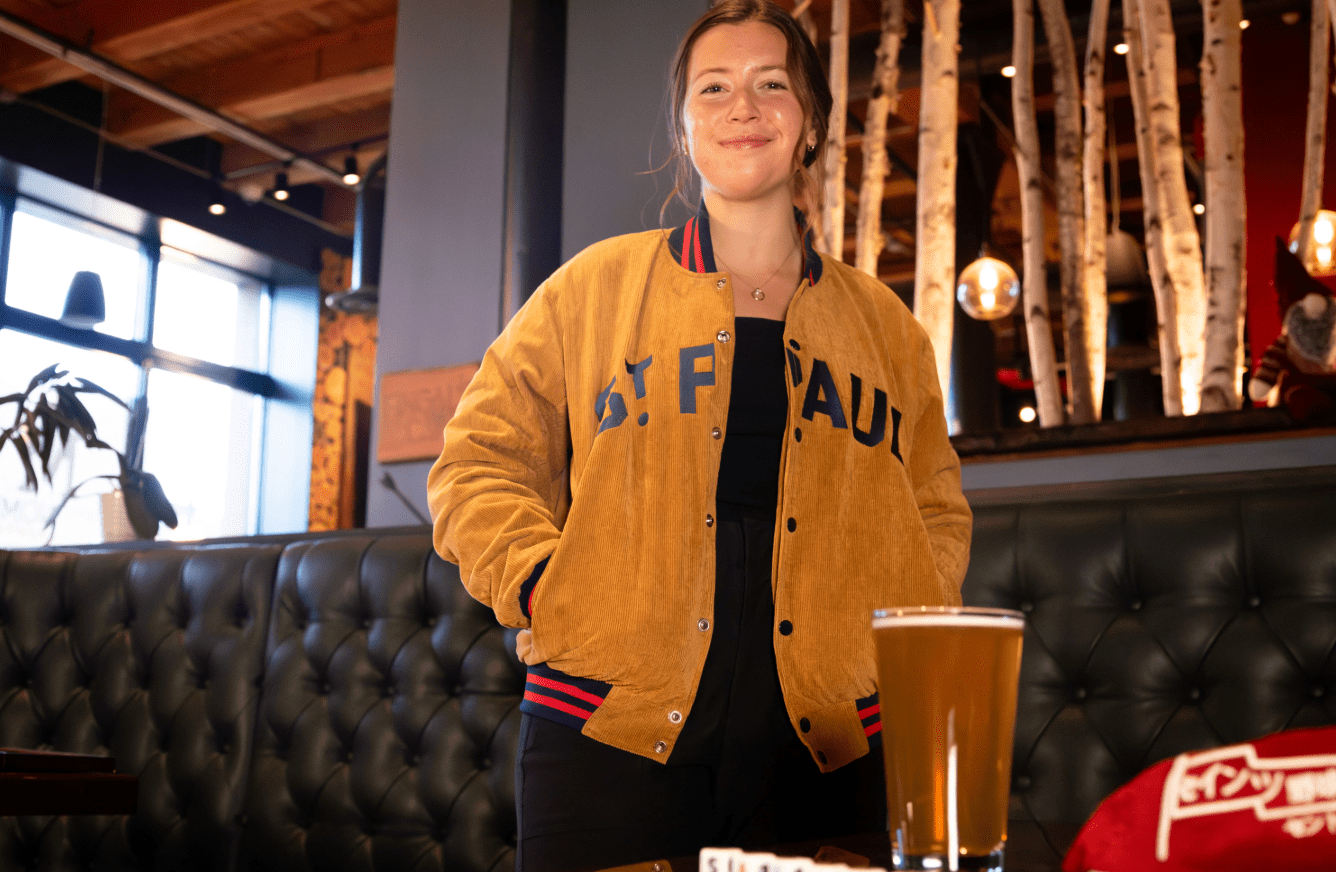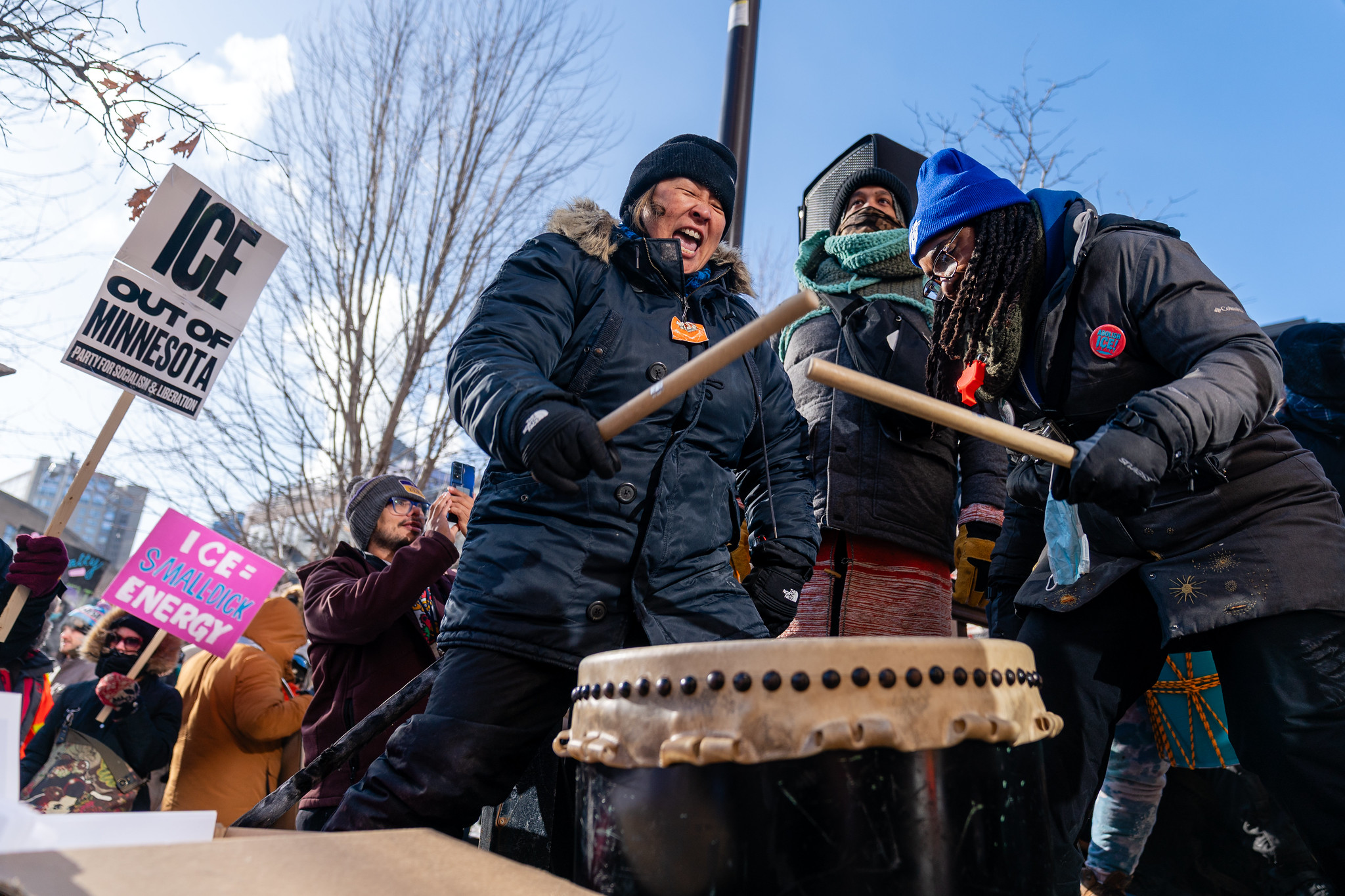The year is 2018, and Jacquline Boxx is about to take the stage at the Burning City Festival in Chicago. They’re intro’d as “the very first performer to compete in the Burlesque Hall of Fame Tournament of Tease with a wheelchair.” Their most famous act to date, titled “Microaggressions,” is flashy, attention-grabbing, and angry as fuck.
Boxx rolls up on stage as the audience applauds. After a second of silence and darkness, the lights come up, Cake’s late ‘90s ode to telling people to STFU, “Nuggets,” kicks through the speakers, and the “teasing” begins. They start with chair work, waving their arms in sync with the beat, popping their chest out anytime “chicken nuggets” come up in the lyrics. In the background, quotes like “You don’t look sick,” “You don’t really need that wheelchair,” and “You might be imagining your symptoms” flash across a screen.
But they’re just getting started. Next Boxx leans back in their chair and pops a wheelie, kicking their fishnet-and-glitter festooned leg over their head as they can-can across the stage. They move to the ground, shucking their slinky black dress off while dry humping the stage, dry humping the air, and massaging their sparkly red butt cheeks for the audience. They turn around, cup their pasties-festooned boobs in an aggressive manner that matches the beat of the music. To end the show, Boxx, chest bared for all to see, flips the audience off with a double bird.
It’s an iconic act, one that took them to performance festivals around the country and even caught the attention of the BBC’s Amazing Humans series. For many audiences, this was the first time they (at least, knowingly) saw a disabled person perform burlesque.
Boxx is one of many talented disabled performers making their way as burlesque artists. And here in the Twin Cities, there’s a growing community of artists with disabilities taking the stage in venues across town. This weekend, just in time for Disability Pride Month, nearly a dozen will enjoy the spotlight at DisabiliTease Festival, a multi-day, multimedia burlesque festival now in its fourth year.
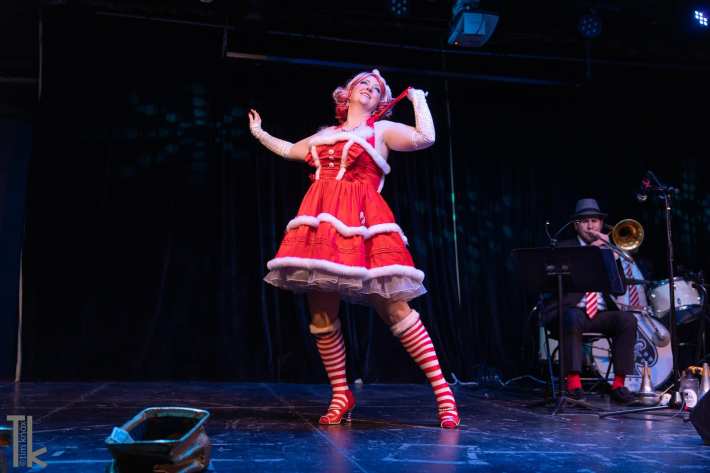
“I started in heels and ended up on wheels,” says DisabiliTease cofounder Minda Mae. “It's because I saw another performer, Jacqueline Boxx, that I realized that [performing in a wheelchair] is not something that's holding me back, it's something that helps me do things that other people can't. I can spin in it. I can go upside down and shake my boobs—that's my favorite move.”
Mae got started in burlesque in early 2018. At the time she was homebound. “My body kind of shut down after I left an abusive relationship,” she says. “And what we didn't know [at the time] is that I have Ehlers-Danlos syndrome, which is a connective tissue disorder.” Her friends wanted to check out a burlesque show, so they called up a medical transport vehicle and made a night of it. Something clicked for her. “I saw these folks on stage with confidence and, like, showing their bodies in ways that I would be too embarrassed to do,” she says. “But I loved it.”
Soon she was onstage herself, doing her trademark boob move.
“I love watching people come in and watch me on stage and freak out because they didn't realize a disabled person could do burlesque,” she says. “A lot of people infantilize disabled people or see them as not worthy or equal.”
To encourage support and community among artists, Mae has also started a disability Facebook group for friends who need to troubleshoot certain aspects of their acts as their abilities change or how to take their set to the next level.
”We just ask each other questions like, ‘Where can I get a cool cane to rhinestone’ or like, ‘I need help with shoes because of this issue,’” Mae says. “A lot of times it's convincing them that it's okay to put that on stage. It's okay to tell people that you're disabled.”
It’s also a place where performers can get support not to perform. “Ableism is very strong in a lot of us, including me,” she says, noting that it shouldn’t be a flex to say you’ve performed sick or injured, but many do for fear of not getting booked again for needing to cancel a show.
While Mae entered the world of performance post-diagnosis, her friend Hollie Dazzle started her burlesque career over a decade ago, long before her health would force her to change her act. Her background includes training in ballet and belly dancing, plus gigs as a magician’s assistant. After her EDS diagnosis, she often found herself struggling to adapt and connect with performance.
“Psychologically, sometimes there's some envy; I'll never be the performer who's doing drop splits and rolling all over the stage or like, being able to cross train in aerial silks or lyra,” she says. “When I first started in disability, I struggled with that and even just being able to sit and enjoy watching other people do it. I never had that before.”
Reevaluating that mindset gave Dazzle a greater understanding of her father, who died just before her myriad health issues started up. As a child, he suffered from polio, which caused mobility issues as an adult. Often he turned to alcohol to cope.
“I never knew until he was much older why he had such a hard time coming to some of my events,” she says. “Now I understand, because I’ll be sitting in the audience trying to enjoy a number and I'm like, ‘I'll never be able to do that.’ And then I just feel shitty about myself.”
But there are still times where she discovers that, disabled or not, she still has innate talents and can succeed in areas where other performers may struggle. During a comedy workshop at a local festival, “I was looking around at all these talented, physical performers who were taking this class and were like, ‘I don't know how to be funny,’” she says with a laugh. “They were all super sexy performers, but that's a skill I have. I'm always up there being a clown. Performing is kind of tough but you find your niche and play on your strengths.”
When she’s not working on a show or her day job as a medical biller, Hollie Dazzle is busy, well, bedazzling things. “I've got a bad arm and a repetitive stress injury from making pasties,” she jokes before showing us her latest project, hand-rhinestoning a pair of high heels for this weekend’s show.
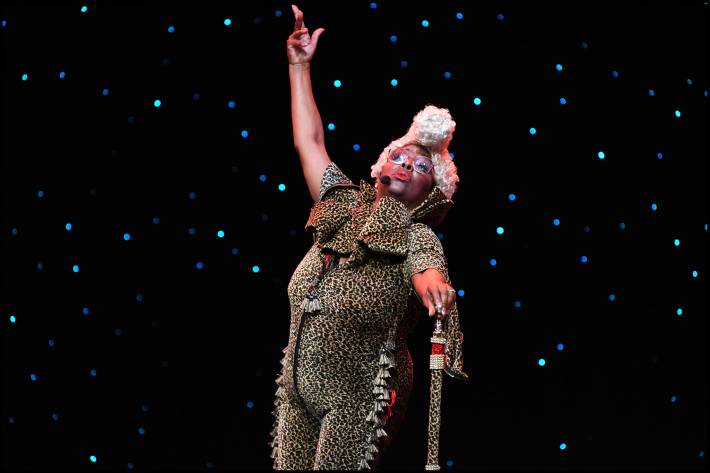
This weekend, Mae will be working behind the scenes at the DisabiliTease Festival. The event will feature a dozen or so performers onstage at north Minneapolis’s Capri Theater on Friday, plus workshops, classes, and a night of streaming performances online on Saturday and Sunday. Despite not seeing many disabled bodies on stage, “I knew there were some, and I wanted to provide a space where they could literally get on a stage,” Mae says, referring to the steps performers often have to climb just to get to the spotlight. “There are so many places that aren’t wheelchair accessible.”
Since the event started as an online stream in 2020, all kinds of performers from around the world have participated (“We have people from The Hague, the U.K., Paris, and a lot of folks from Australia!” she says), and any artist with a disability—folks who are seizure-prone, have autoimmune diseases, anxiety sufferers, etc.—are welcome to apply. “I didn't realize how many disabled performers were out there, but a lot of people hide their disabilities so that they can get booked,” Mae says.
In fact, the only Twin Cities theater she has found to be legit accessible on an all-around level is the Capri. While many venues around town are handicap accessible for audiences, that’s not always the case when you’re a performer. In fact, unless something was built after 1990, when the Disabilities Act was put into law in the U.S., it’s probably not. Many mid- and smaller-sized theaters in town are in older buildings; think tiny dank dressing rooms too small for a wheelchair, crumbly stairs on their way to becoming a pile of rocks, and creepy freight elevators only accessible through alleyways.
“Currently, there are no local bars where I can perform,” Mae says. “Either the stage, the bathroom, or the green room have stairs. I can perform Black Hart, but I have to change in the accessible stall, which also has a baby-changing station. So a wheelchair cannot go in; somebody has to take my chair out and watch it while I change. Luckily, they put in a ramp so I can get to the stage.”
She says one way that venues can be allies is to take an honest inventory of their space, and write an accessibility statement to add to their website. Mae helps pen these kinds of things, and maintains a spreadsheet and video on how to do it. “It's a lot of information,” she admits. “Like where do I park? How do you get in the building? What's the bathroom situation? Do you have an ASL interpreter?” At this weekend’s show, audiences will be warned beforehand if sets include flashing lights.
Sometimes, organizers believe they are more accessible than they are. During our interview, Mae recounts an example of a venue that managed to install bigger doors, but not automated buttons. Platforms and dips can also be unpleasant surprises for people with disabilities. And the next time you’re in an accessible toilet stall take a moment to consider this: If you were in a wheelchair, would you be able to turn around or would you have to back out? It’s things like this that can add a bit of chaos to a night out for disabled people.
At Friday’s live performance, Hollie Dazzle will be the featured performer. She’ll be debuting a new act exploring a decade of performance, introspection, and body changes, all set to Selena Gomez’s “Rare.”
“The patron animal for Ehlers-Danlos is the zebra. There's a phrase that they teach doctors, ‘Think horses, not zebras.’ Look for the most common thing, not the uncommon thing,” she explains. “But Ehlers-Danlos syndrome is rare. And I realize that I am rare, and I am special. And there's places for me in the world and people in the world who will see that and honor that.”
DisabiliTease Festival
Where: Capri Theater, 2027 W. Broadway, Minneapolis (plus online events and performances)
When: 8 p.m. Friday (live/online) and Saturday (online); 11:30 a.m. to 5 p.m. Sunday workshops
Tickets: $20-$25; more info here
